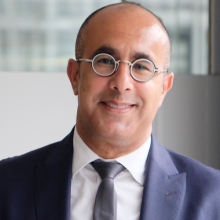
Blogs
Between 2005 and 2014, due to natural disasters, the Central America region had a nominal cumulative loss of around US$5.8 billion, and witnessed more than 3,410 deaths and hundreds of thousands of displaced people.
Development professionals often complain about the absence of good-quality data in disaster-prone areas. Technological progress, however, is quickly creating new ways for governments and development agencies to overcome data scarcity.
If governments could apply triage to substandard housing, medical triage would be a much less frequent occurrence – because in the developing world, it is mainly housing that kills people, not disasters. Resilient cities require resilient housing.
Part 2 of a 3-part series on Bangladesh's progress in Coastal Resilience.
Protecting the poor against natural hazards is a moral, economic, and social imperative. The poor can lose everything to disaster, and not just money.
For many countries, damages and losses related to transport are a significant proportion of the economic impacts of disasters. Recognizing this, GFDRR and the World Bank organized an international knowledge exchange that shared concepts and practices on resilient transport, including systems planning, engineering and design, asset management, and contingency programming.
Usually the first questions after a disaster are “How many people are affected?” and “What’s the damage?” We want to know how many people were affected and the potential impact on the economy.
A severe drought in Somalia risks pushing communities throughout country into famine. Ede Ijjasz-Vasquez and Ayaz Parvez discuss how the World Bank and its partners are working to help.
When it comes to responding to disasters, time is of the essence. And while money is critical to this response, it’s not just about funding. Indeed, funds need to match the event scale, target the right areas and sectors, and smoothly flow to communities in need. But in order for that to happen, sound public policy on risk and frameworks have to be in place.
Culture is the foundation on which cities are built. Culture injects a sense of place in a city that brings meaning to its people; without culture and people, cities would be no more than a mere collection of buildings and unbuilt areas. Culture plays a critical role during post-conflict and post-disaster reconstruction processes.

 Juan Jose Miranda
Juan Jose Miranda
 Frederico Pedroso
Frederico Pedroso
 Keren Charles
Keren Charles
 Melanie Kappes
Melanie Kappes
 Luis Triveno
Luis Triveno
 Sameh Wahba
Sameh Wahba
 Stéphane Hallegatte
Stéphane Hallegatte
 Shanika Hettige
Shanika Hettige
 Emma Phillips
Emma Phillips
 Ede Ijjasz-Vasquez
Ede Ijjasz-Vasquez
 Zuzana Stanton-Geddes
Zuzana Stanton-Geddes